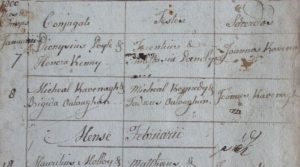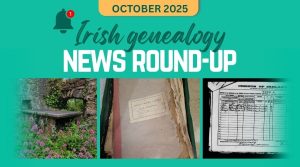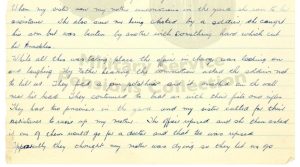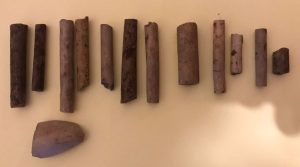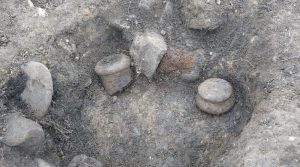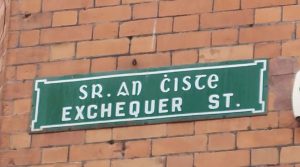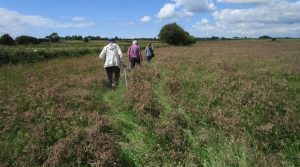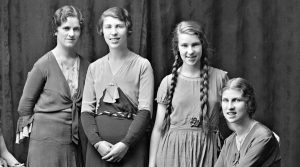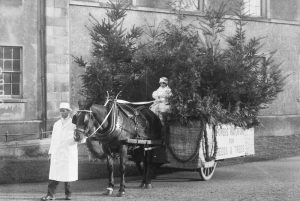In 2025 so far, FamilySearch has already greatly enhanced its Irish genealogy collections by indexing over 2.5 million Catholic church records and 2.7 million dog licence records, as well as introducing a new search tool for the Registry of Deeds records that utilizes computer-generated transcriptions and AI-generated summaries of the records.
FamilySearch.org – the free genealogy website operated by the Church of the Latter-day Saints (LDS) Family History Library – has made important contributions to Irish genealogy this year by enhancing its Irish collections. These updates include newly indexed Catholic parish registers and dog licence registrations, alongside implementing a new search tool for the Registry of Deeds records, which are important land records. To access the records, simply set up a free FamilySearch account or log in to your existing account. These updates offer researchers more efficient ways and new avenues to trace their Irish family history.
A D V E R T I S E M E N T
Irish Catholic parish registers
FamilySearch has continued its ongoing work of indexing the Ireland, Catholic Parish Registers, 1740-1900 record set, with thousands of new entries indexed each month. So far in 2025, over 2.5 million records have been indexed.
These local parish registers contain records of Catholic baptisms, marriages and deaths that took place across the island of Ireland between 1740 and 1900. The registers also include a smaller number of confirmations, dispensations (exemptions from canon law), and funeral and burial records.
>>> YOU MIGHT ALSO LIKE: A guide to navigating Northern Ireland’s church records
While the registers are viewable as digitized microfilm images on the National Library of Ireland’s website, they are not indexed there, making searching time-consuming. The indexed records on FamilySearch allow users to search by name, place and year, considerably speeding up the research process.
The information recorded in the registers varies depending on location, date and record type but typically includes:
For baptismal records:
- Date and place of baptism
- Name of baby
- Parents’ names (sometimes including the mother’s maiden name)
- Family’s residence (usually townland or street)
- Names of godparents
Sign up to our newsletter
For marriage records:
- Date and place of marriage
- Names of bride and groom
- Townland / street where each party lived
- Names and occupations of their fathers
- Names of witnesses
>
For death records:
- Name of deceased (and sometimes address)
- Date of death
>
Quick links
- Search Ireland’s indexed Catholic parish records on FamilySearch here
- Read more about the Irish Catholic parish record set on FamilySearch here
- Browse parish registers on the National Library of Ireland site here (note: these are not transcribed or indexed)
- Search Catholic parish records for the Diocese of Cork and Ross, the Diocese of Kerry and Dublin City on IrishGenealogy.ie here
- Search RootsIreland’s subscription site for transcriptions of Catholic parish registers from across Ireland here
A F F I L I A T E A D

Irish dog licence registers
In February of this year, FamilySearch indexed 2.7 million entries from its Ireland, Dog License Registrations, 1810-1926 record set, which includes both indexed entries and digitized images of dog licence registrations from across Ireland.
Most families living in 19th and early 20th century rural Ireland kept a dog or multiple dogs. Issued by the petty sessions courts, dog licences were a legal requirement for dog owners, most of whom kept working dogs for herding, hunting or guarding, though some were simply pets. Millions in revenue were generated from the licence fee.
These often overlooked records can reveal interesting details, particularly about families living in rural Ireland and can confirm a person’s address in a particular year. The records typically note:
- Owner’s name and address
- Date licence was issued
- Breed, colour and sex of dog (occasionally also its name)
>
The dog licence index is courtesy of FindMyPast.
Quick links
- Search the Irish dog licence records on FamilySearch here (note that recently the search option sporadically disappears, but keep checking back as it will reappear; when it does, the transcribed information will be accessible, though images are not yet available)
- Read more about the dog licence record set on FamilySearch here
- Search FindMyPast’s subscription site for indexed dog licence records here
Registry of Deeds records
FamilySearch launched a full-text search tool in February of this year for its Registry of Deeds record set, part of its Ireland, Properties, from 1298 to 1975 collection. This new tool enables users to search computer-generated transcriptions of deeds, conveyances, leases, mortgages, annuities, wills, marriage settlements, retirement arrangements, dissolutions of partnerships, rights-of-way and other financial transactions and transfers of ownership registered in Ireland between 1708 and 1929 in the Registry of Deeds.
In simple terms, a deed is an official record that transfers the title of an interest, right or asset (often a property) to a new owner. The main parties involved in a deed are the grantor(s) and the grantee(s). A grantor disposes of or transfers an interest, typically by selling, leasing or mortgaging the property, while the grantee receives property rights from the grantor.
A D V E R T I S E M E N T
Although registration was not mandatory, many deeds were voluntarily registered with the registry office in Dublin. A “memorial” of the original deed was created, essentially a verbatim copy or detailed synopsis, which was then copied into large volumes known as Transcript Books or Memorial Books. Indexes of the grantors and places were subsequently created as searching aids. FamilySearch holds microfilm images of the Memorial Books, Grantors Index and Land Index (also called the Place Name Index) covering 1708–1929, amounting to 2,686 microfilm reels. These images have long been available to view on the FamilySearch website but were never searchable until now.
The deed records offer a wealth of genealogical data, often listing multiple generations of a family, maiden names, occupations and ages, as well as referring to wider familial or business networks. Property transactions also help establish the timeframes during which a person lived in or operated out of a specific premises.
A D V E R T I S E M E N T
With the new search tool, researchers can now easily search the Registry of Deeds records by keywords, name, place and year, eliminating the need to sift through image after image of often challenging handwriting. The tool then presents computer-generated transcriptions of the relevant records. In addition, FamilySearch has introduced an AI-powered tool that generates summaries of these complex documents, which are often filled with legal jargon and archaic terminology. This tool not only highlights key details from the transcriptions but also breaks down dates, names and relationships. This is a game-changer for researchers navigating these complicated records.
This update greatly enhances accessibility, though the computer-generated transcriptions and AI-generated summaries may occasionally contain errors due to challenges with unclear handwriting or faded text in the original records.
Please help support
Irish Heritage News
A small independent start-up in West Cork
Give as little as €2
Thank You
Quick links
- Search the Registry of Deeds records on FamilySearch here
- Browse the digitized microfilm images of the Registry of Deeds records on FamilySearch here
- Browse full-colour digitized images of a sample of Registry of Deeds records on the Virtual Record Treasury of Ireland website here
- Visit the Registry of Deeds Index Project website here
>
For genealogists and historians alike, these new resources offer new and exciting opportunities to uncover and understand the lives of Irish people from the past. If you’re lucky enough to find one of your ancestors in these records, be sure to check the original image for additional information. Careful analysis may reveal further clues to uncover other records of the person or their family. One find can often lead to another – and to a richer, more detailed understanding of your heritage.
And remember, FamilySearch.org is entirely free to use – simply create an account to access the records or log in if you already have one.
Advertising Disclaimer: This article contains affiliate links. Irish Heritage News is an affiliate of FindMyPast. We may earn commissions from qualifying purchases – this does not affect the amount you pay for your purchase.
READ NOW
➤ More Irish birth, marriage and death records now available online for free
➤ Navigating the new system for Irish census records launched by the National Archives
➤ Did your ancestor spend time in a workhouse?
➤ Find your ancestors in Ireland’s historical school records
➤ Understanding marriage settlements for Irish family history research
A D V E R T I S E M E N T




